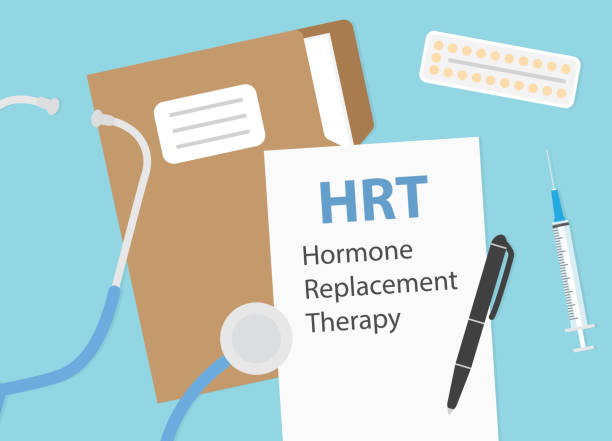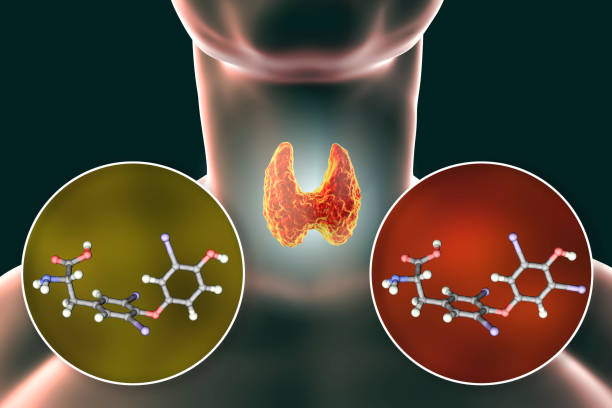If you have andropause, hormonal imbalance, or menopause symptoms, you are aware that hormones have a significant impact on your emotional and physical health. You’re probably aware of the importance of hormone replacement therapy in replenishing your hormone levels and regulating your body.
Many hormone-related symptoms can be effectively reduced with hormone replacement therapy and bioidentical hormone therapy. Even if you understand that hormone therapy is your best option, many people struggle to determine the best method of administration.
Hormone pellet therapy has recently grown in popularity among men and women seeking to re-establish their well-being. Is hormone replacement therapy appropriate for you? Here are the benefits and drawbacks of bioidentical hormone pellet therapy to help you decide whether or not to use this novel treatment method.

What are hormone pellets?
Hormone replacement therapy has been used for over a century to treat hormone-related symptoms. However, both the innovative treatment options and the administrative methods have evolved to meet the needs of the patients.
Hormone pellet therapy is the most exciting option for many patients today. The pellets are placed beneath your skin (on your lower abdominal wall or hip area) and are intended to mimic your body’s natural hormone levels.
The bioidentical pellets, which measure 3mm by 9mm and are roughly the size of a maize grain, include custom hormone preparation. These hormones are gradually metabolized by your body over three to six months, making it a convenient way to administer hormonal treatments.
Individuals who choose compounded bioidentical hormones may require a saliva test to determine their salivary hormone levels. However, according to ACOG (American College of Obstetricians), saliva testing is not a precise way to check hormone levels.
How many pellets will you need?
The number of pellets you’ll require and how frequently you’ll require them are determined by your hormone levels and personal symptoms. The number of pellets implanted in your body, however, has no bearing on the size of your wound.
The implantation must be performed under local anesthesia by a qualified doctor, such as those at Meridian Health Atlanta. Fortunately, for the majority of patients, this procedure is painless, and the pellets do not need to be removed when your treatment is finished because they dissolve into your body.
Hormone Pellet Therapy: Pros and Cons
If you’re still debating whether hormone pellet therapy is right for you, it’s critical to weigh its advantages and disadvantages in comparison to other types of hormone replacement therapy.
Pros of hormone pellet therapy
- Ease of use
Hormone pellets are arguably the most convenient way to administer hormones currently available. You are not required to take your medication on a daily or weekly basis. Instead, you’ll only need to visit Meridian Health for a minor outpatient procedure 2-4 times per year.
But why does hormone pellet therapy necessitate such a small number of visits? Within 3-6 months, these tiny pellets gradually release the hormones into your system.
- Hormone pellets are easy to insert
Whatever hormone combination your therapy entails, your doctor will make a small incision that is gentle on your body. Before making a tiny 1/4-inch incision on your hip or lower abdomen, your healthcare practitioner will use a local anesthetic and medical tape to seal the area. There are no visible stitches or scars.
- Steady dosage
Hormone pellets provide a more consistent, physiologic, and predictable hormone dose for several months after they are implanted. This allows patients to avoid the noticeable valleys and peaks that other hormone replacement therapy options may cause.
Bioidentical hormone pellets are designed to mimic the natural hormones you’re attempting to replace. While other delivery methods differ, these pellets deliver hormones to your body in a manner similar to the originals.
- Better Adherence
While modern hormone administration methods such as creams, gels, patches, injections, and pills may produce positive results, they will only work if you follow the prescription. Even minor deviations from your dosage schedule can have a significant impact on the results.
Hormone pellets assist in reducing such risks by eliminating patient errors, allowing you to obtain greater therapeutic benefits. That’s because hormone pellet therapy eliminates the possibility of forgetting to take your medication.
Your healthcare provider is in charge of your hormone treatment, including implanting the pellets and scheduling your visits. Healthcare providers have the necessary skills to predict when the pellets will be completely dissolved, necessitating another appointment. This is a significant advantage, particularly for patients who frequently forget to take their medication.
Cons of hormone pellet therapy
- Pellets aren’t removable
There is a high risk of overtreatment if you do not select the right healthcare provider to administer pellet hormone therapy. Your healthcare provider can insert more pellets into your body but cannot remove them once they are in place.
We recommend seeking treatment from experienced healthcare providers because hormone pellets are not removable. You can overcome this disadvantage by contacting a Meridian Health Atl professional healthcare provider.
- Hormone pellets aren’t easy to adjust
When you begin, your healthcare provider will thoroughly assess your hormone levels and carefully measure your dose. However, if you experience any side effects and need to switch to a different hormone blend, the pellets are difficult to adjust to.
If there are any complications, you will have to wait until your next appointment after the pellets have completely dissolved.
- Possible discomfort after insertion
While hormone pellet treatment requires a minor and often painless surgical procedure, the risk of complications is low. There’s a chance you’ll get an infection or have some discomfort after the procedure, which could include mild swelling, bruising, and redness at the incision site.
- Recovery period
Hormone therapy patients who use pellets are advised by their doctors to avoid strenuous activities following the procedure. You should also avoid prolonged contact with water on the incision site for several days.
- Higher cost
Bioidentical hormone administration via pellets is slightly more expensive than other hormone therapy options. However, you should weigh this disadvantage against the long-term benefits and convenience. Your financial situation will also be important.
Weighing the pros and cons of pellet therapy
While the disadvantages of bioidentical hormone pellets may appear to outweigh the benefits for some, research shows that patients who choose this method are happier. Bioidentical pellets are also less likely to cause side effects than other methods.
A recent study on men who used testosterone therapy found that 95% of them were satisfied, compared to 75.2 percent of patients who used injections. These astounding findings suggest that the benefits of hormone pellets far outweigh any disadvantages for the vast majority of patients.
What signs indicate you need pellet hormone therapy?
While pellet therapy is commonly used by women experiencing early menopause symptoms, the FDA has not approved it. As a result, bioidentical hormone replacement therapy is not suitable for everyone.
Here are some indicators that you require bioidentical hormone replacement therapy.
- Vaginal dryness
- Night sweats
- Hot flashes
- Low sex drive
- Bone loss
- Itching, pain, or a burning sensation during sex
- Mood swings
- Irritability
Can I use pellet bioidentical hormone replacement therapy?
Pellet therapy is appropriate for almost any patient who requires compounded bioidentical hormone therapy. Hormone pellet therapy, on the other hand, is most useful when treating patients who have a busy schedule or who cannot afford to add bioidentical hormone replacement therapy to their daily routine. It’s also extremely convenient for patients who travel frequently.
When should I expect to see results?
Some patients notice improvements several days after the pellets are implanted. Others take several weeks to notice any benefits. However, if you are not getting the desired results, you should consult your doctor. Your healthcare practitioner will adjust your compounded hormones and provide you with the necessary medical support.
What if pellet therapy doesn’t work?
While the pellets deliver the bioidentical hormones directly to your bloodstream at a consistent rate, there are several reasons why the treatment may not appear to be working:
- Significant stress that causes hormonal imbalances.
- Competition with other underlying medical conditions like thyroid issues, high blood pressure, and type 2 diabetes.
If stress and other medical conditions aren’t to blame, your doctor will raise your dosage at your next appointment.
Do you need help dealing with hormone imbalance? Get hormone pellet therapy at Meridian Health And Wellness Atlanta!
Meridian Health And Wellness Atlanta is a leading healthcare provider dedicated to providing patients with hormonal imbalance symptoms with oral and transdermal therapy. Our highly trained medical practitioners take the time to understand your symptoms and develop a comprehensive treatment plan tailored to your specific requirements. To make an appointment, call (470) 344-5780!



